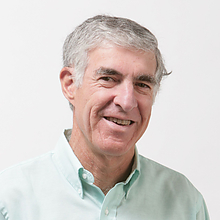Hanan Samet - Reading News with Maps by Exploiting Spatial Synonyms
- Keynote Speech

Attention : le lieu n'est pas le même qu'habituellement : amphi D Ensimag au lieu de l'amphi E !
The conference will be broadcast live
Hanan Samet is a Distinguished University Professor of Computer Science at the University of Maryland, College Park. He received the B.S. degree in engineering from UCLA, and the M.S. Degree in operations research and the M.S. and Ph.D. degrees in computer science from Stanford University. His doctoral dissertation dealt with proving the correctness of translations of LISP programs which was the first work in translation validation and the related concept of proof-carrying code.
NewsStand is an example application of a general framework to enable people to search for information using a map query interface, where the information results from monitoring the output of over 10,000 RSS news sources and is available for retrieval within minutes of publication. The advantage of doing so is that a map, coupled with an ability to vary the zoom level at which it is viewed, provides an inherent granularity to the search process that facilitates an approximate search thereby permitting the use of spatial synonyms instead of being limited to an exact match of a query string. This is predicated on the use of a textual specification of locations rather than a geometric one, which means that one must deal with the potential for ambiguity.
The issues that arise in the design of a system like NewsStand, including the identification of words that correspond to geographic locations, are discussed, and examples are provided of its utility. More details can be found in the video at http://vimeo.com/106352925 which accompanies the ``cover article'' of the October 2014 issue of the Communications of the ACM about NewsStand at http://tinyurl.com/newsstand-cacm or a cached version at http://www.cs.umd.edu/~hjs/pubs/cacm-newsstand.pdf.




